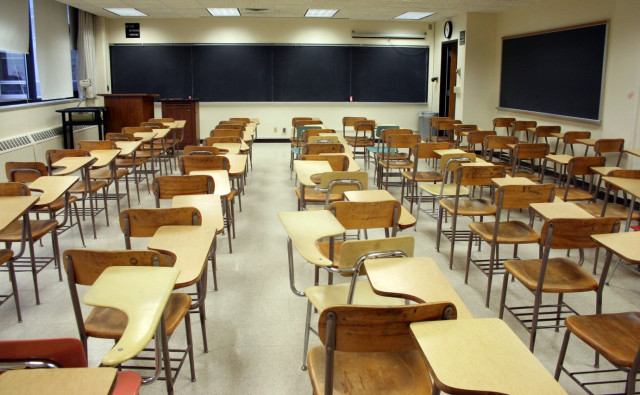Policy making: USAID, others plan non-formal education
It aims to teach basic literacy to non-school going students

PHOTO: EXPRESS
To form a proper policy for non-formal education (NFE) and adult literacy programme (ALP) was part of the Sindh Education Sector Plan 2014-2018. The education department and SBEP organised a conference with educationists, private partners, donors, education department officials and stakeholders to explain the key aspects of the policy.
Inaugurating the conference, special SED secretary Alia Shahid shared that the policy process was initiated a year ago, after a survey that revealed that 51% children are out of school and an adult literacy rate of only 58% in Sindh. "This is the first time NFE has been given this much importance other than just dialogues," she said, adding that they have kept three things in consideration - collaboration among departments, systematic way to implement the programme and promotion of vocational skills among students.
Chief guest Education Minister Jam Mehtab Hussain Dahar said that providing an opportunity to the children of the province is the government's responsibility and to start something as meaningful as NFE will also provide economic opportunities. "The ideas behind such reforms are reinforced by standing committees and emphasised by the need for stronger institutional arrangements to create social opportunities in Sindh," he said, adding that the policy focuses on the most disadvantaged groups of society, with a stronger gender focus.
The policy emphasises four key points, which are NFE for out of school children, literacy for youth and adults, lifelong learning and life skills-based learning.
NFE and ALP director Alam Thameem shared his journey with policymaking and said that NFE is the most neglected part of education. "We always talk about the dropout ratio but NFE is also an important sector without which the growth of the nation cannot be possible," he added.
"The state of education is something with which everyone is familiar, but the situation of NFE is something that is in a dismal state," said Syed Asad Ali Shah, managing partner at Deloitte and engagement leader Sindh Capacity Development Project (SCDP). Referring to the education emergency imposed by the chief minister, he said that the province needs to implement that emergency seriously in order to make the education system better.
SCDP consultant Abdus Sami Khan said that when the task was given, there were only two options, one was to take baby steps and make small reforms and the other was to create a long-term path and take a big step.
Curriculum head Fauzia Khan, while explaining the curriculum plan, said that they have divided the curriculum for NFE into three packages - package one will cater to students of class one for a month-long course, package two will cater to class two to three students for an eight month-long course while the third package is for class four and five students for 16 months.
Published in The Express Tribune, December 8th, 2016.












1724319076-0/Untitled-design-(5)1724319076-0-208x130.webp)






COMMENTS
Comments are moderated and generally will be posted if they are on-topic and not abusive.
For more information, please see our Comments FAQ